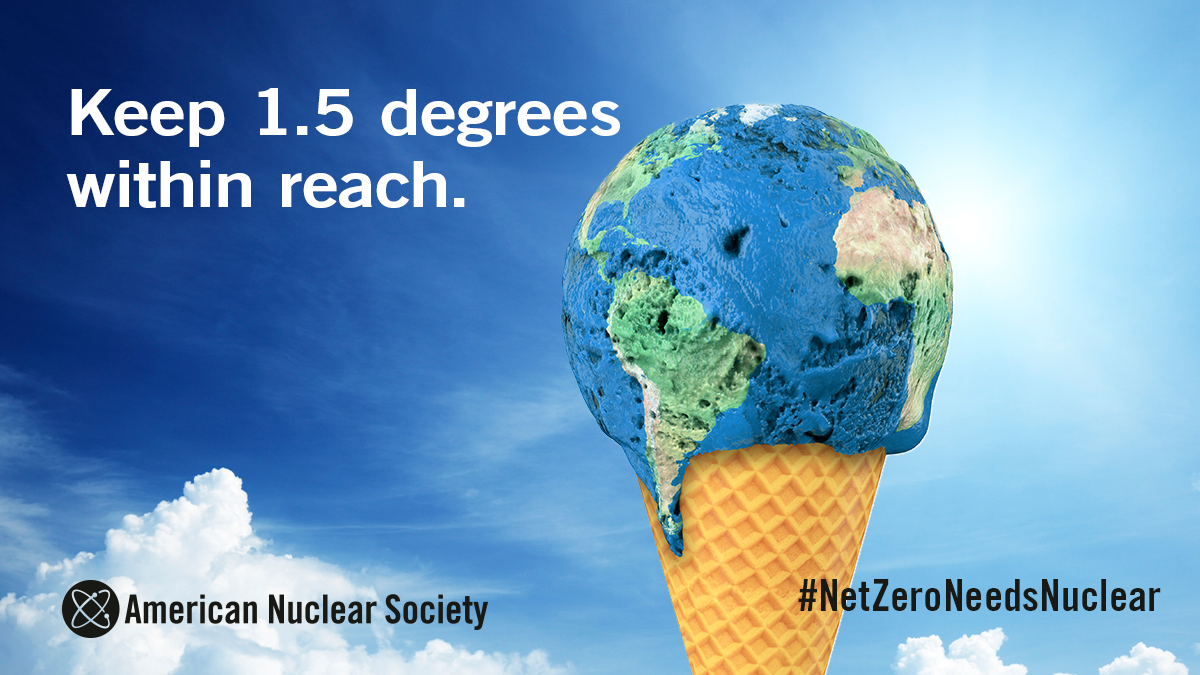The first plasmas created in FuZE-Q, shown here during assembly, represent a key step towards fusion experiments with net energy output. (Photo: Zap Energy)
Zap Energy has created the first plasmas in its FuZE-Q machine—the company’s fourth prototype machine and the one it hopes will demonstrate a net energy gain from a Z-pinch fusion plasma just one millimeter in diameter and half a meter long. Zap Energy announced that engineering achievement and the close of $160 million in Series C funding in late June.
As the 68th ANS president, the career veteran of the NRC looks to create a more visible, proactive Society.
Steven Arndt began his one-year term last month as president of the American Nuclear Society, bringing the same high level of energy, investment, and action he has exhibited throughout his career. Reflecting on a life spent improving nuclear safety and technology, he notes that it’s not just the work; it’s also about the people and building connections and relationships. Arndt fondly recalls Peter Lyons, former NRC commissioner, assistant secretary of energy for nuclear energy, and ANS board member who passed away in April 2021. “I have been incredibly lucky to know and work with some great people in our field, and almost to a person they have been like Pete Lyons,” Arndt said. “They have been gregarious, outgoing, and supportive.”
The Grand Gulf nuclear power plant in Port Gibson, Miss. (Photo: Entergy)
The Mississippi Public Services Commission has announced a $300 million settlement with Entergy Mississippi—the largest settlement in the MPSC’s history—ending the state’s part in multistate Federal Energy Regulatory Commission proceedings involving Grand Gulf plant customer rate impacts.
A cutaway image of the BWRX-300. (Image: GE Hitachi Nuclear Energy)
Following an assessment of several small modular reactor technologies, SaskPower has chosen GE Hitachi Nuclear Energy’s (GEH’s) BWRX-300 SMR for potential deployment in Saskatchewan in the mid-2030s, the Canadian utility announced earlier this week.
A shot from a coal mine in Poland. (Photo: IAEA)
Point Lepreau nuclear power plant. (Photo: Andre Bussiere)
The Canadian Nuclear Safety Commission has renewed the operating license of the reactor at the Point Lepreau nuclear plant for a period of 10 years. As a result, the facility’s 660-MWe CANDU-6 unit, the five-year license for which was set to expire on June 30, is now permitted to operate until the end of June 2032. License holder NB Power had requested an unprecedented 25-year extension.
The new IPS installed in Bruce Power’s Unit 7 will produce Lu-177 for treating cancer. (Photo: Bruce Power)
An international collaboration between Bruce Power, Isogen (a joint venture of Kinectrics and Framatome), and ITM Isotope Technologies Munich SE, announced a milestone marking the first time that lutetium-177, a short-lived medical radioisotope, has been produced in a commercial nuclear power reactor.
Vogtle Units 3 and 4, with Units 1 and 2 in the background. (Photo: Georgia Power)
Both Oglethorpe Power Corporation and the Municipal Electric Authority of Georgia (MEAG), two co-owners of the Vogtle nuclear plant, have filed lawsuits against Southern Company subsidiary Georgia Power, the facility’s primary owner.
Oglethorpe and MEAG are 30 percent and 22.7 percent owners, respectively, of Vogtle. Georgia Power holds a 45.7 percent share. (Dalton Utilities, which owns 1.6 percent of the plant, is not involved in the suits.)
Turkey Point nuclear plant. (Image: FPL)
Florida Power & Light (FPL) has submitted a supplemental environmental report to the Nuclear Regulatory Commission in support of the subsequent renewed licenses for Turkey Point Units 3 and 4. According to a June 22 NRC press release, FPL’s report was submitted on June 10 to satisfy a “deficiency” in subsequent license renewal applications (SLRA) that rely on the generic environmental impact statement (GEIS) on license renewal and is being reviewed prior to docketing. William D. Maher, director of nuclear licensing projects at FPL, submitted the report, noting that “FPL’s review did not identify any information materially changing the impact assessments” in the NRC’s supplemental GEIS for the Turkey Point licenses.














